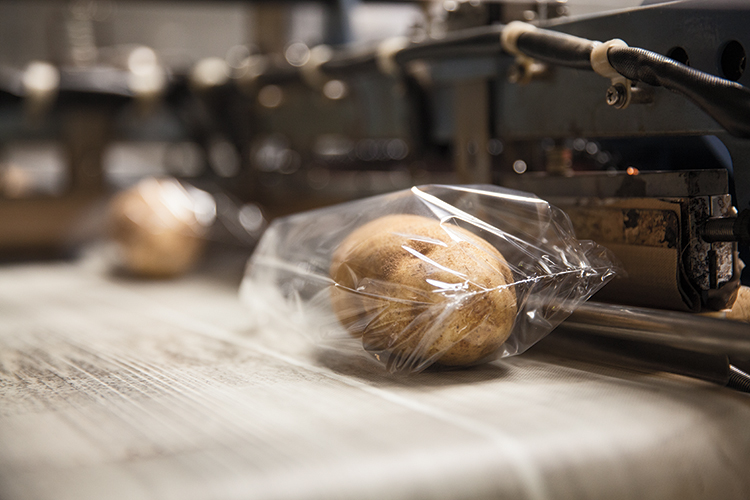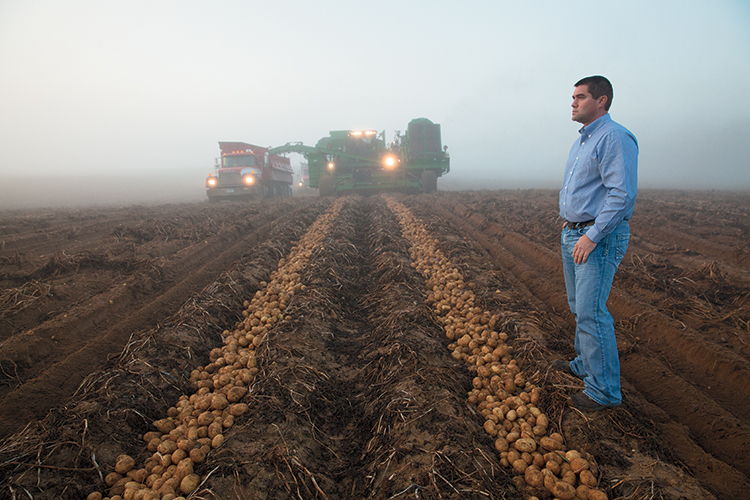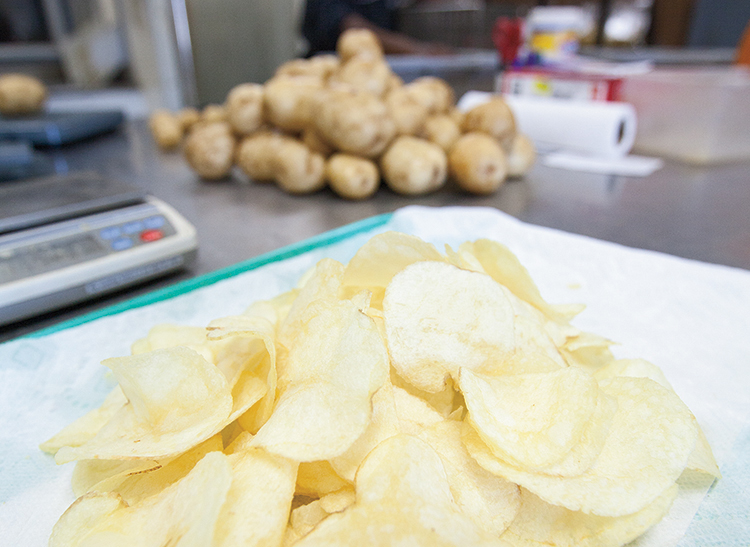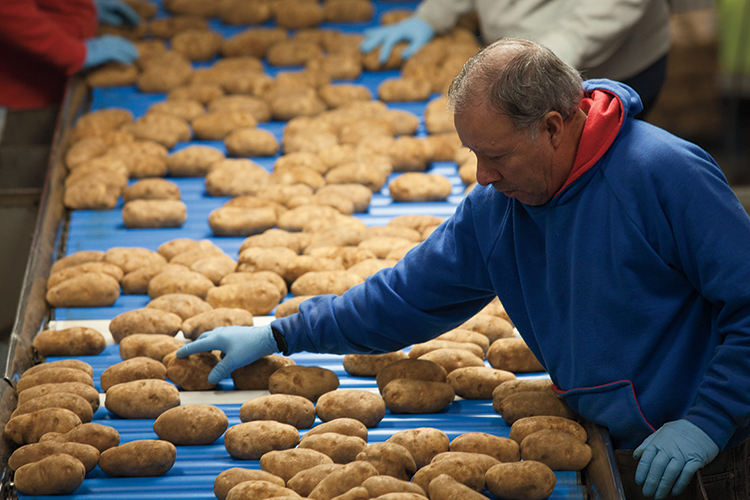Home > Michigan > Michigan Farm to Table > Michigan’s Potato Industry’s Spectacular Spuds
Michigan’s Potato Industry’s Spectacular Spuds
In partnership with: Michigan Department of Agriculture & Rural Development

Michigan digs potatoes. Literally.
Ranked No. 6 in the nation for the value of potatoes and No. 8 in potato production, the state has approximately 45,000 potato acres. Michigan ranks first in the country for potato chip production, and potatoes generate $167 million for the state.
The life of a potato begins with the tissue culture of plant cuttings. Seed producers like Don and Ben Sklarczyk of Sklarczyk Seed Farm work from tissue culture plants tested to verify freedom from all virus and bacteria, which means one important thing.
“They’re working from a plant clone, so there are not hybrids, but genetic stock,” says Mike Wenkel, executive director of the Michigan Potato Industry Commission.

From this infantile stage, a potato becomes a mini-tuber in hydroponic greenhouses. The mini tubers are then given to seed growers who grow them for three years. Next, the potato travels to a commercial farm that will grow them for one year before placing them into storage.
“From August to mid-October, we are busy harvesting and grading potatoes. About mid-September growers start filling storages,” Wenkel says.
Grower Jason Walther, a third-generation farmer, manages potatoes on more than 13,000 acres on farms spread out across the country for Walther Farms.
“We grow potatoes in Michigan’s Upper Peninsula and on farms in Florida, Georgia, South Carolina, Indiana, Illinois, Nebraska and Colorado,” Walther says.
Walther Farms began growing potatoes in 1946 and now grows seed on 500 acres. This process takes three years, he says.

Walther finds himself in the middle of Michigan’s potato supply chain, purchasing mini-tubers from Sklarczyk Seed Farm, and then delivering potatoes 52 weeks of the year.
“We supply all chip processors and retailers who sell to the fresh market,” Walther says.
Walthers grows the round white potato for the potato chip industry and russets for the fresh market. Although Walther Farms focuses on potatoes as their primary crop, they still practice crop rotation to ensure the health of the soil.
“We rotate with corn, soybeans and wheat,” Walther says.
The industry has continued to improve and evolve not only by improving yields, but also by improving efficiency.
“We have changed so much in terms of sustainability. We use fewer resources like water and fertilizer than we did 10 years ago,” Walther says.
For 11 months of the year, Walther ships potatoes to processors like Better Made Snack Foods located in Detroit. Founded in 1930, the regional family-owned company receives four to six truckloads of potatoes every day.

“That’s about 50,000 pounds of potatoes per truck load,” says Phil Gusmano, vice president of purchasing for Better Made Snack Foods.
But Michigan potatoes are not just plentiful, they are high quality.
“We cook everything we receive in one day,” Gusmano says.
Better Made Snack Foods employs 180 people at its Detroit facility, 75 percent of whom live within a five mile radius of the company.
“We hire local. In an area where a lot of minimum wage jobs exist, we pay a decent salary and provide benefits,” Gusmano says.
Of the 22 potato chip companies that once filled the city, Better Made Snack Foods is the only one remaining. However, Gusmano points back to the producers for much of the success.
“We have the best farmers in the country,” he says.
Recently named to the Michigan Potato Industry Commission, Gusmano stresses the importance of agriculture in general to the cities.
“Agricultural processing is very important to the city of Detroit, and I’m not sure many people realize the impact that agriculture has on the economics in urban settings,” he says.



